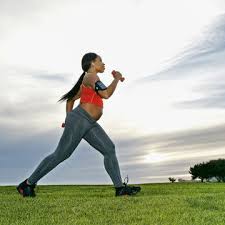How to take care of yourself after birth
At nine months pregnant, you become so fatigued and anxious to see your baby that it’s all you ever think of. You take time to prepare for the arrival of the baby and everyone gives you advice on how to take care of the baby. What you don’t know is that you will also need to take care of yourself and having information beforehand on how to take good care of yourself will go a long way into making you after birth an easy transition. You will experience a lot of changes both physically and emotionally.
So what are some of the changes to expect within 6 weeks after birth?
Vaginal discharge/Lochia
After birth, your body will get rid of the blood and tissues that were inside your uterus. They come out as blood and clots which start out as very heavy and frequent flow and gets lighter and less over time. For some women, the flow will be for some days, weeks and can go up to six weeks. The best sanitary pads to use are the maternity pads. They are usually thick to absorb the heavy flow and so you don’t have to worry about leaking or staining yourself. If you do not want to keep washing your panties, you can buy disposable panties from baby shops. They are a savior!
Constipation
Nothing will ever fully prepare you for after birth constipation. I swear that constipation is the devil himself. It is uncomfortably painful, coupled with the vaginal pains it becomes even worse. Anyhow, you can ease constipation by:
- Taking lots of warm water
- Eating a diet high in fiber
- Eating lots of vegetables
- If it gets worse, you can ask your doctor to prescribe a laxative
Breast Engorgement
During the first few weeks, your baby will not take a lot of breast milk since their tummy is still so small. This will leave your breast full almost all the time causing your breasts to be engorged. This can be painful and can even bring a high fever with it. To relieve your breasts you can pump the milk, take warm showers or hot compresses with a hot towel. The engorgement should go away after releasing milk from the breast. Should you notice any blood or pus discharge, please contact your doctor.
Fatigue
The process of childbirth can traumatize your body physically especially vaginal birth. This can leave you so fatigued especially if your baby is also giving you sleepless nights. Try and rest when your baby is asleep. Limit visitors so that you can get time to relax and get in touch with yourself. Get a house help to help with house chores so that you can concentrate on the baby. Also, having a supporting spouse help with the baby will help.
After birth cramps
As your uterus shrinks back to its normal size, you will experience pains especially when the baby is breastfeeding. The pains should, however, go away after a few days so there is no need for medication. Massage your tummy with hot water or hot coconut oil to help it shrink faster.
Vaginal and Perineum Soreness
During labour your perineum, the area that is between your vagina and rectum stretches and even tears to allow the baby to come out. This causes the perineum to get sore especially if you had an episiotomy. To manage the soreness
- You can do sit on warm salty water at least 3 times a day and every time that you use the toilet.
- Sit on a soft surface but don’t be seated for long
- When using the toilet, wipe from front to back to avoid infections
- You can ask your doctor for a relief cream to apply.
- Cold ice cubes can also be used
- To strengthen your perineum muscles, do Kegel exercises once you are strong enough.
Nipple pains
During the first few days of breastfeeding, you will experience pains on your nipple. This can be worsened by the baby not latching correctly resulting in nipple cracks. You can use a nipple shield, nipple cream or apply your breast milk on the cracked area to heal the wounds. Letting your breasts to air dry also works.
Urinary problems
Some women experience a burning sensation when urinating or incontinence. Others may feel the urge to urinate but when they try, nothing comes out. All these are normal after birth. You can resolve this by:
- Drinking a lot of water
- To help with incontinence, you can do Kegel exercises to strengthen the pelvic muscles.
- Also, open your tap and leave it running to give you the urge to urinate when you go to the toilet
Hemorrhoids
Some women may also experience difficulty in passing stool as a result of swollen veins around the anus and sometimes in the anus.
To manage hemorrhoids, eat food rich in fiber, drink a lot of warm water and if it gets worse, consult your doctor so that he can prescribe medications for you to use.
A lot of sweating.
This is because of the rush of hormones in your body. You will find that you sweat a lot during breastfeeding.
Other changes that you will experience are stretch marks on your body, the darkening of your tummy which will slowly change to its original color after a while. Your hair might also start thinning and breaking which is believed to be as a result of breastfeeding.
To regain your energy and your health, ensure that you generally eat a balanced healthy meal and take lots of rest. You should bounce back at least after six weeks if you have been taking good care of yourself. Surround yourself with a good support system so that you don’t get overwhelmed and fall into postpartum depression.

Do you have any news or article you would like us to publish? Kindly reach us via outreach@t4d.co.ke or howtodoafrica@gmail.com.




















